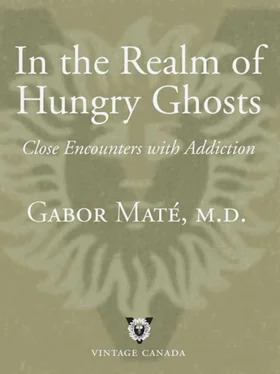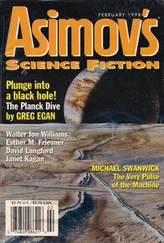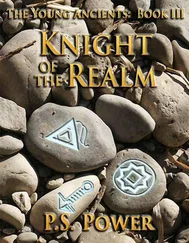I lose myself when caught in one my addictive spirals. Gradually I feel an ebbing of moral strength and experience myself as hollow. Emptiness stares out from behind my eyes. I fear that even my friends at Sikora’s, who sell me the goods, can see through my thin mask. There is nothing behind the façade but an organism palpitating for instant gratification. It’s not a music lover standing at the counter but an abject weakling. I sense they pity me.
Everywhere I go, I find it an effort to impersonate myself. Nurses at St. Paul’s Hospital ask me how I am. “Fine,” I say. “I’m good.” What I don’t say is, “I’m obsessed. I just blew in from the record store and can hardly wait to get through my work here so I can rush down to the car to listen to this opera or that symphony. Then, unless I go to the store to pick up more stuff, I’ll go home and lie to my wife. And I’m feeling guilty as hell. That’s how I am.” Self-deprecating, pessimistic or negative comments creep into my conversations. Someone on the ward compliments my work. I attempt a joke: “Oh, you can fool some of the people some of the time.” No joke, that. They look at me strangely and protest that they meant it. Of course they did, but in my shame, I don’t believe I deserve any praise. A secret addiction comes equipped with praise deflectors.
I become increasingly cynical about the world—politics, people, possibility, the future. Every morning I get into a hostile argument with the newspaper, resenting it for what it says or doesn’t say. The Globe and Mail, in its news slant, editorials and choice of columnists, favours corporations, the mainstream parties and neo-con foreign policy makers. But the poor old Globe is just being true to its blue-blooded, capitalist self. It’s still the best paper in Canada, and I’m the one who chooses to fund it with my subscription dollars. So why am I yelling at it over coffee? My negativity stems from my internal dissatisfaction, my harsh self-critique. The Globe doesn’t speak the truth as I see it? Neither do I. The Globe justifies selfish acquisitiveness and exonerates dishonesty? Look who’s talking.
Would that the spread of negativity were confined to my prickly relationship with print journalism. No, I become increasingly and reflexively critical, irritable and self-righteous with my teenaged daughter. The more I indulge myself, the more judgmental I am toward her. I can’t be optimistic and believe in her growth and development when I know I’m sabotaging my own. How can I see the best in her when I’m blind to all but the worst in myself? Our interactions are tense. At age seventeen, she’s at no loss for words or body language to communicate her displeasure.
My relationship with Rae loses vitality. Because my internal world is dominated by obsession, I have little to say and what I do say rings hollow in my own ears. Because my attention is pulled inward, the interest I offer her becomes dutiful, rather than genuine. When I’m in one of my addictive cycles, it’s almost as if I were engaged in a sexual affair, with all the attendant obsession, lying and manipulation.
Above all, I’m absent. It’s impossible to be fully present when you’re putting up walls to keep from being seen. Intimacy and spontaneity are sacrificed. Something’s got to give, and it does–sometimes for days, sometimes for weeks and months.
When they were much younger, I’d keep my children waiting or hurry them along to suit my purposes. If I could, I’d expunge from my personal history the time I left my eleven-year-old son at a comic-book shop after a soccer game, with one of his teammates. “I’ll be back in fifteen minutes,” I said. It was nearly an hour before I returned. I’d not only run to the store across the street; I’d also driven to another one, downtown, on my quest for whatever was at that moment my must-have-immediately recording. My son’s face was clouded with anxiety and bewilderment when he finally saw me at the comic-book shop door.
I lied to my wife daily for weeks and months at a time. I’d rush into the house, stashing my latest purchases on the porch, pretending to be home and grounded. But inwardly I could think of nothing but the music. When the reckoning came, as it always did, I made guilty confessions and soon-to-be-broken promises.
I hated myself, and this self-loathing manifested itself in the harsh, controlling and critical ways I’d deal with my sons and my daughter. When we’re preoccupied with serving our own false needs, we can’t endure seeing the genuine needs of other people—least of all those of our children.
Perhaps the nadir, but certainly not the end, of my addictive years came when I left a woman in labour to run over the bridge, in midday traffic, to Sikora’s. Even then, I would have had time to return to the hospital for the delivery had I not begun to cast about for other recordings to buy. I murmured apologies when I got back, but no explanations. Everyone was most understanding, even my disappointed patient. After all, Dr. Maté is a busy man. He can’t be everywhere at once. I enjoyed a reputation in Vancouver as a physician who extended himself for his pregnant patients and would support them compassionately through their delivery. Not this time. This baby was born without me. (Her name is Carmela. She’s a beautiful twenty-year-old dancer and university student. I told her mother, Joyce, the full story many years ago.)
This is not the first public “confession” I’ve made. I’ve written and spoken about my addictions before. And the truth is that as of this writing, neither my public acknowledgments of my behaviour nor my thorough understanding of its impact on myself and my family has stopped me from repeating the cycle. I’ve authored three books and receive letters and emails from readers the world over, thanking me for having helped them transform their lives. Yet I have continued to choose patterns that darken my spirit, alienate those closest to me and drain my vitality. *10

In January 2006, when I’m in the midst of an extended CD obsession, Sean comes moaning into my office. “I’m messing up,” he says. “I’m puking and shitting. I’ve been doing heroin…oh, man.” Sean has been at a recovery home for months. I haven’t seen him for a long time, but he did call regularly, proudly reporting on his progress and his determination to stay clean. Once, he left a voicemail: “I’m calling to say that I appreciate all your help. I just want to say thanks, man.” Now he’s back in the Downtown Eastside, pale, bedraggled, emaciated, unwashed. He’s been living in the streets for weeks but plans to admit himself to a Christian rehabilitation camp.
“Don’t you think you should be back on the methadone?” I suggest. Sean eagerly downs his first dose before recounting the details of this most recent relapse. “I don’t know why, Doc. I thought I’d just use one time, just the one time. And that was it.”
“So are you going through with the Christian rehab thing?”
“My family is pushing me, but I’m not up to it.”
“Have you told them that?”
“No.”
“What stops you from being straight with them?”
“Hurting them. They’ve helped me so much, and I turned around and failed so miserably.”
I’m instantly filled with judgment. Annoyed by his neediness and weakness of will—that is, by my own—I want to teach him a lesson.
“I don’t believe you,” I counter. “Not that you don’t mean it, but you’re not being honest with yourself. You’re not worried about hurting them—you’re already hurting them.”
“Yes, I am. But I don’t want to go to this Christian place; I know what it’s all about. It’s really tough there—a complete schedule. It’s harsh and rigid.”
Читать дальше













